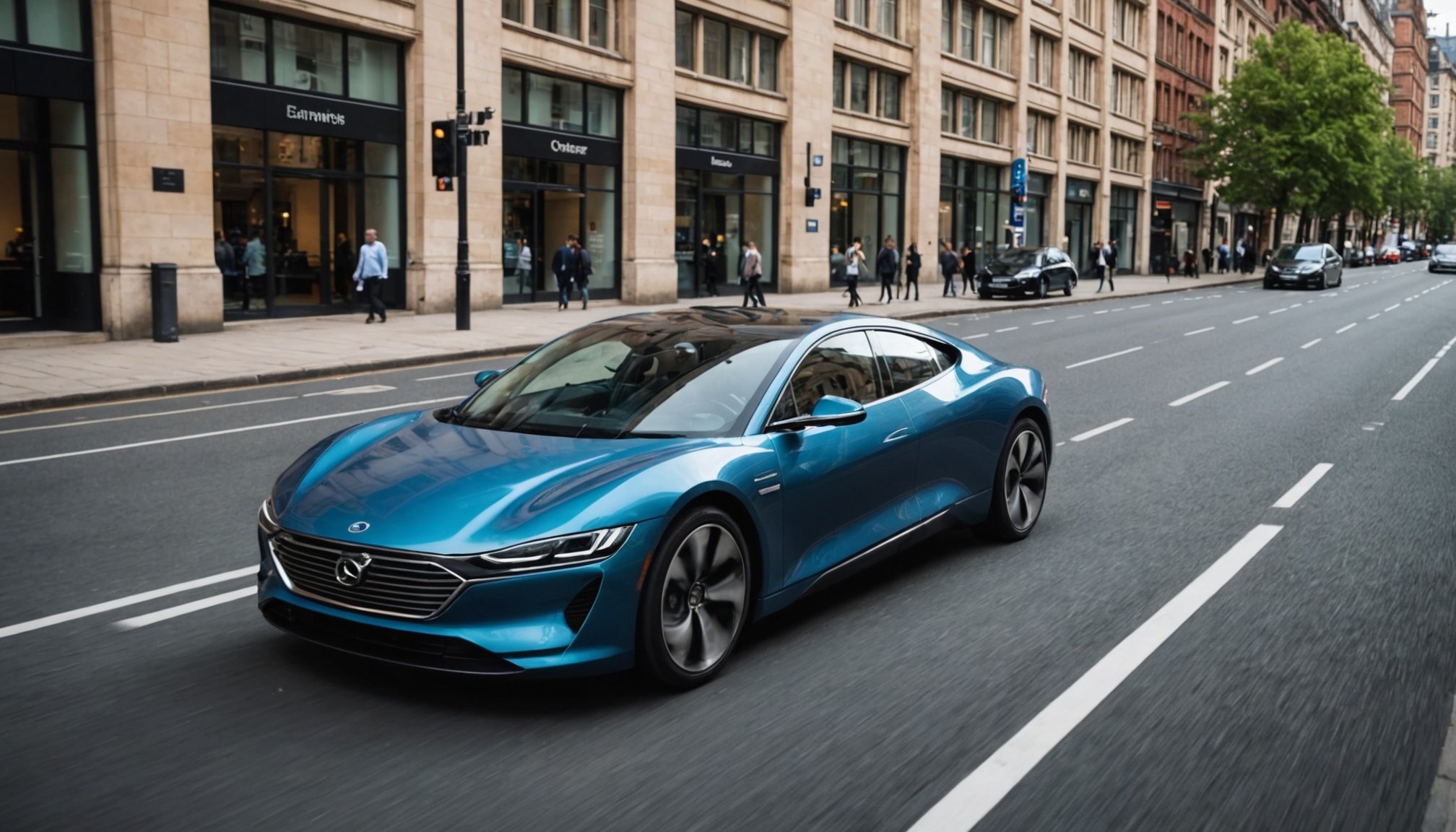The automotive industry is entering an era of unprecedented change. As we progress into 2024, the UK market is at the forefront of adopting innovative technologies that promise to reshape how we think about vehicles. From electric cars to advancements in battery technology, the landscape is evolving rapidly. Understanding these emerging trends is crucial for consumers, manufacturers, and stakeholders alike. In this article, we will explore five key vehicle technologies that are set to transform the UK automotive market in the near future.
Electric Vehicles and Their Impact on the Market
Electric vehicles (EVs) are leading the charge in the current automotive revolution. As battery technology continues to improve, the range and efficiency of EVs are becoming more appealing to consumers. The demand for electric cars is on the rise, driven by government incentives and a societal shift towards sustainability. In the UK, the government has set ambitious targets to phase out petrol and diesel vehicles, which has accelerated the push for EV adoption.
Also to discover : How do carpooling and ride-sharing services impact vehicle ownership trends in the UK?
The future of the automotive market hinges on how well manufacturers can adapt to this trend. Companies are investing heavily in manufacturing capabilities to boost production rates of electric vehicles. As charging infrastructure expands across the country, the perception of electric cars is shifting from niche to mainstream.
Additionally, the data generated by EVs provides insights into driving habits and vehicle performance, allowing car makers to enhance the customer experience. This data-driven approach is creating a more personalized experience for drivers, which could lead to increased sales of electric vehicles. As the UK continues to embrace this technology, expect the market to see a significant increase in the availability of various EV models, making it easier for consumers to make the switch.
Have you seen this : How should UK residents choose the right insurance coverage for their vehicle?
The Rise of Autonomous Driving Technologies
Autonomous driving technologies are another area that holds great potential for the future of the automotive industry. As advancements in artificial intelligence and machine learning progress, the dream of fully self-driving vehicles is becoming a reality. Companies like Waymo, Tesla, and various traditional car manufacturers are investing in developing these technologies.
The potential benefits of autonomous driving include improved mobility, reduced accidents, and enhanced traffic management. For the UK, this could mean a significant transformation in urban planning as self-driving vehicles may change how we design roads and cities. With fewer accidents on the road, insurance costs could decrease, leading to lower prices for consumers.
However, the path to full autonomy is fraught with challenges. Regulatory frameworks must evolve to ensure safety and public acceptance of self-driving vehicles. Additionally, the ethical considerations surrounding decision-making algorithms in critical situations are still under debate. Nevertheless, the momentum for autonomous driving technologies is strong, and as we look to the future, the integration of these systems into the automotive market will likely change how we think about driving and vehicle ownership.
Connected Vehicle Technologies and Data Utilization
The automotive landscape is also being transformed by connected vehicle technologies. These systems allow vehicles to communicate with each other and with infrastructure, providing real-time data and improved safety features. The implementation of Vehicle-to-Everything (V2X) communication is a game-changer, as it enables cars to share information about traffic conditions, road hazards, and even nearby pedestrians.
This connectivity can enhance the driving experience and improve safety on the roads. For instance, if a vehicle detects a potential hazard, it can alert other cars in the vicinity, allowing them to react accordingly. Such innovations will undoubtedly increase consumer confidence in automotive technologies.
Furthermore, the vast amounts of data collected from connected vehicles can be used to optimize traffic flow, reducing congestion and emissions. In the UK, cities are already exploring smart traffic management systems that utilize this data to create a more efficient transportation network.
As consumers become more accustomed to technology in their everyday lives, the adoption of connected vehicles will likely rise. Manufacturers that prioritize connectivity will have a competitive advantage in the market, as consumers increasingly seek out vehicles that offer the latest in technology and convenience.
Advancements in Battery Technology
Battery technology is arguably the backbone of the current automotive revolution. The ongoing research into new battery chemistries is vital for the future of electric vehicles. Improved batteries can lead to longer ranges, faster charging times, and lower costs, making electric cars more appealing to the average consumer.
Solid-state batteries, for instance, are heralded as the next big breakthrough. They promise higher energy densities and enhanced safety compared to traditional lithium-ion batteries. As manufacturers invest in this technology, the market for electric vehicles is set to expand significantly, appealing to a broader audience.
Moreover, the development of recycling methods for used batteries is crucial in reducing environmental impact. As the automotive industry shifts toward electric vehicles, the management of battery waste will become increasingly important. Companies that can innovate in recycling will not only contribute to sustainability but also create a new market for repurposed materials.
In the UK, government initiatives are supporting research into next-generation battery technologies, aiming to establish the country as a leader in this field. The combination of public and private investments will likely accelerate the adoption of electric vehicles and solidify their place in the future of the automotive market.
As we look towards the future of the automotive industry in the UK, several emerging technologies stand out as pivotal forces for change. Electric vehicles, autonomous driving, and connected vehicle technologies are reshaping the landscape of mobility. Advances in battery technology will further enhance the viability of electric cars, ensuring they meet consumer needs and regulatory standards.
The convergence of these trends indicates that the way we perceive vehicles and transportation will continue to evolve. As manufacturers and consumers alike adapt to these changes, the potential for innovation is immense. The UK automotive market is on the brink of a new era, one that promises greater efficiency, safety, and sustainability. Staying informed about these trends will be essential for navigating the future of mobility.











